Vocabulary expansion Normal History Worksheets for Ages 6-9
5 filtered results
-
From - To
Enhance your child's historical knowledge and language skills with our Vocabulary Expansion Normal History Worksheets, designed for ages 6-9. These engaging resources merge social studies and vocabulary development, making it easy and fun for young learners to explore historical events, figures, and terms. Each worksheet is crafted to boost comprehension, widen vocabulary, and foster a love for history. Perfect for classroom or home use, these tools ensure children develop critical thinking while expanding their knowledge base. Give your child the advantage of a well-rounded education with our expertly designed worksheets.
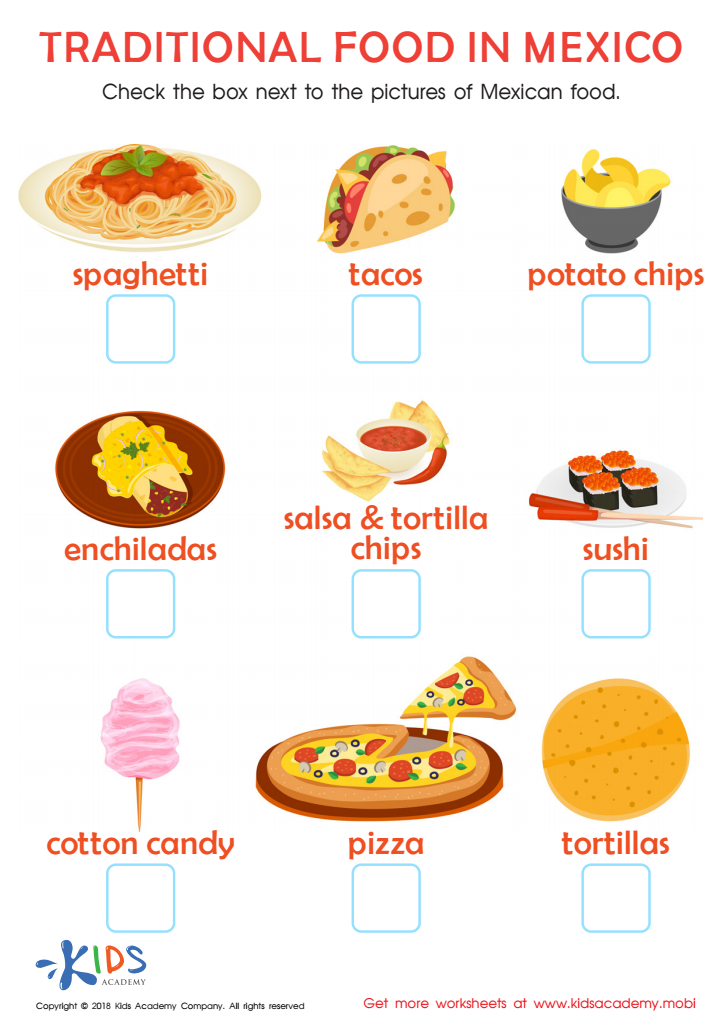

Traditional Food in Mexico Worksheet
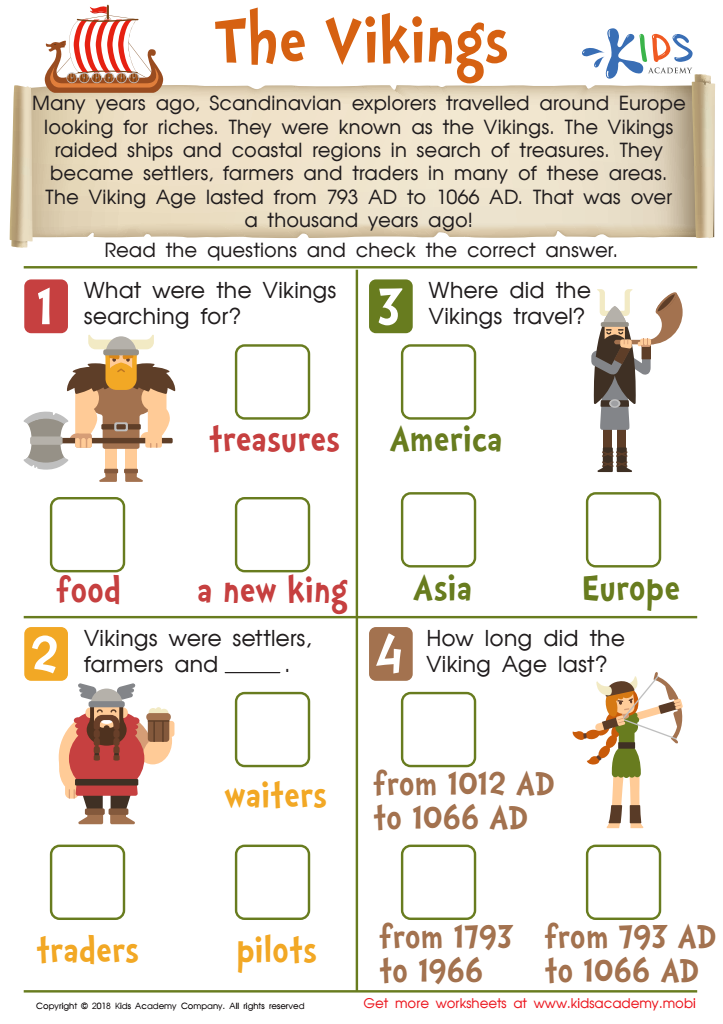

The Vikings Worksheet
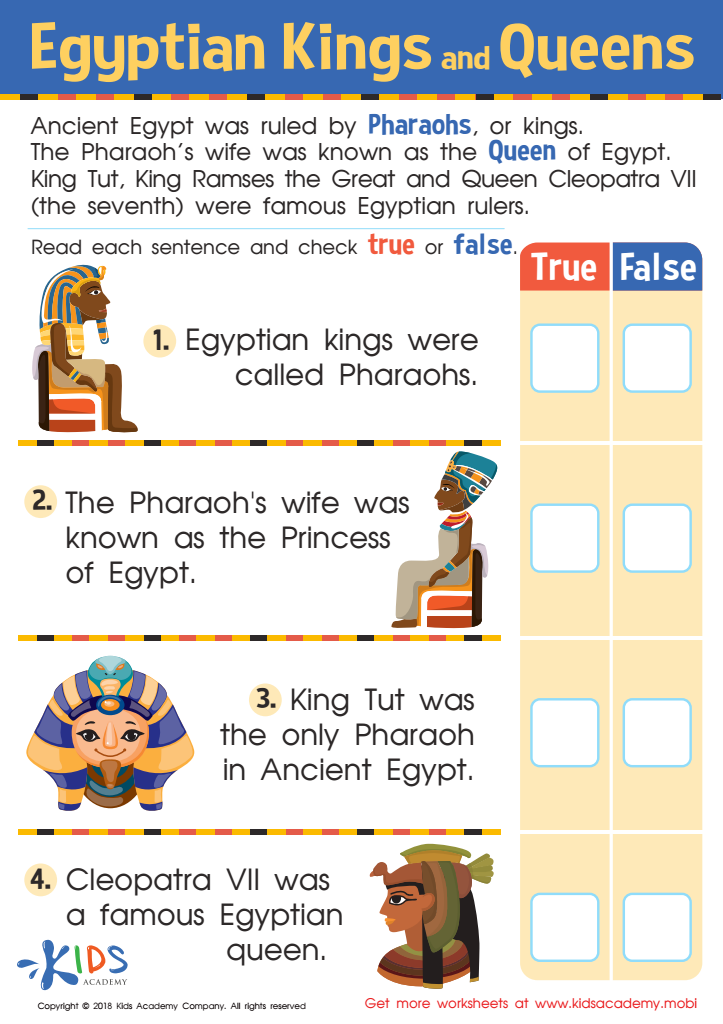

Egyptian Kings and Queens Worksheet
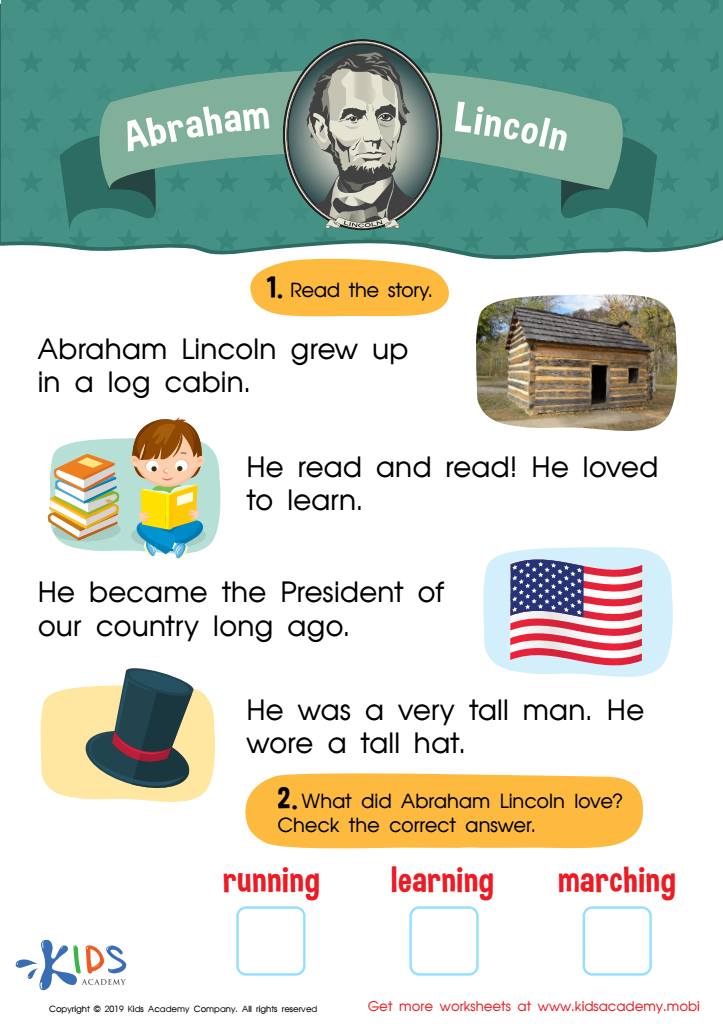

Abraham Lincoln Worksheet
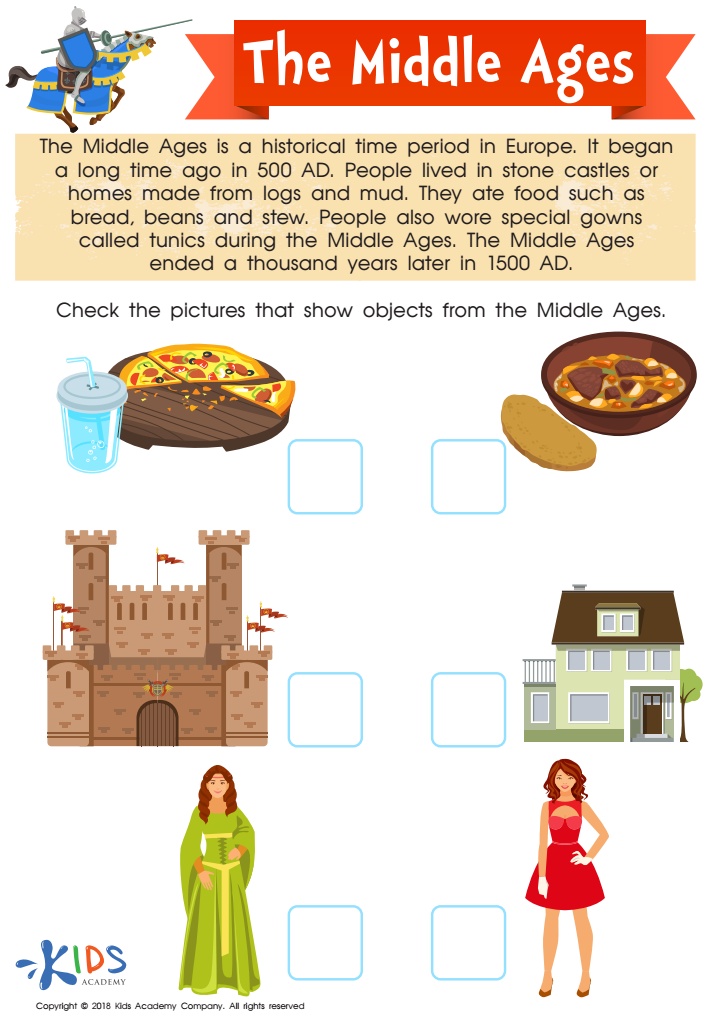

The Middle Ages Worksheet
Vocabulary expansion between the ages of 6-9 is critical for a child's overall development and success in life, making it essential for teachers and parents to focus on it diligently. At this age, children are in the "learning to read" stage, which quickly transitions into the "reading to learn" phase. A rich vocabulary enhances their ability to understand and absorb new information across all subjects, from math to science, and social studies to art. Good vocabulary helps foster better communication skills, enabling children to express their thoughts, feelings, and ideas more clearly and effectively.
Moreover, vocabulary growth is directly linked to academic achievement. Children with a strong vocabulary tend to perform better on standardized tests and exhibit improved reading comprehension. This prepares them for more advanced studies and future educational opportunities. Additionally, vocabulary expansion supports cognitive development: it improves memory, critical thinking, and problem-solving skills.
For social and emotional development, a robust vocabulary allows children to better understand others' emotions and perspectives promoting empathy and effective interpersonal relationships. Expanding vocabulary from an early age sets a foundation for lifelong learning and opens doors to richer, more diverse worlds. Therefore, investing the time and effort in vocabulary growth at these ages reaps lifelong benefits.
 Assign to My Students
Assign to My Students







.jpg)







